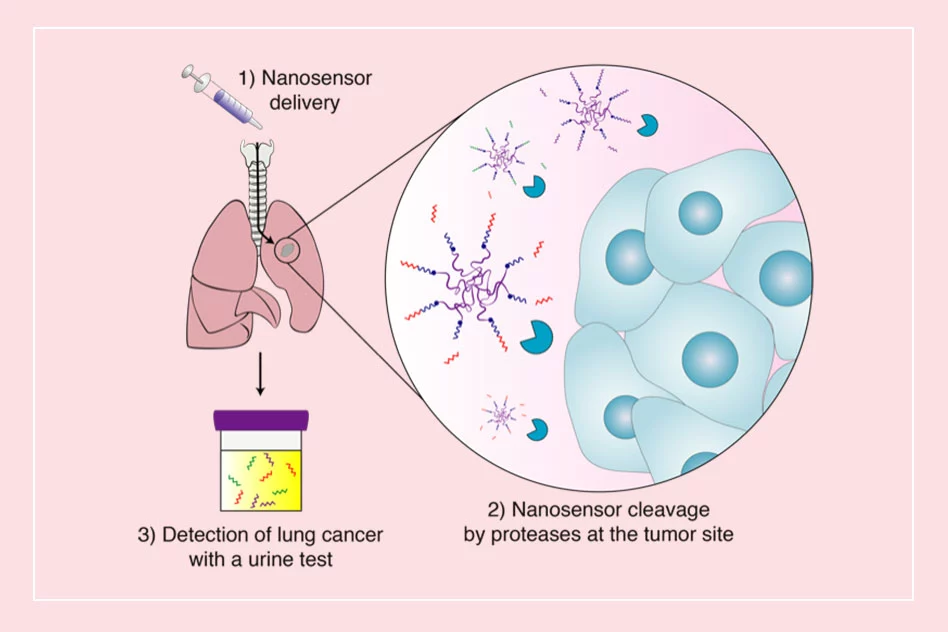Early detection is key when it comes boosting survival rates for cancer patients, and there are a lot of ways scientists are working to swing the odds in their favor. Urine tests that pick up biomarkers of the disease are one exciting possibility, and researchers at MIT have demonstrated a particularly promising example that could give efforts to diagnose early-stage lung cancer a huge boost.
The technology was developed by scientists in MIT’s Koch Institute for Integrative Cancer Research, who have previously developed sensors that can detect early signs of ovarian and colon cancer. The team is now turning its attention to lung cancer, which is usually diagnosed using CT scans that reveal tumors in the lungs but also returns a lot of false positives, mistaking benign growths for malignant ones.
The sensor has been in the works for a number of years, with Sangeeta Bhatia leading a research team in developing nanoparticles that link up with enzymes known as proteases. These enzymes are key to the survival and spread of the cancerous cells, enabling them to move beyond their original locations by slicing through the extracellular matrix – the network of molecules, such as collagen and other structural proteins, that surround the cells.
By coating these nanoparticles in certain peptides that are naturally targeted by the proteases, they can be injected and are drawn towards the tumor site. Here they gather and the proteases cut the peptides apart, a process that releases biomarkers that are detectable in a urine sample and can reveal the presence of small tumors in the lungs.

These nanoparticles were put to the test in mouse models that had been engineered to develop lung tumors. The nanoparticles were injected directly into the animals' airways, with the team then running diagnostic tests to search for the relevant biomarkers at five weeks, 7.5 weeks and at 10.5 weeks after the tumors had begun to grow.
The test revealed the presence of tumors as early as five weeks in one strain of mice. In another, it accurately detected tumors as small as 2.8 cubic mm on average, at 7.5 weeks. According to the team, this accuracy is comparable or better than that of CT scans performed at the same points in time.
The team imagines this technology complementing existing diagnostics methods rather than replacing them entirely. Those who undergo a CT scan, which can often mistake inflammation in the lungs for early-stage cancers, and receive a positive result are often then subjected to biopsies to investigate further.
“The CT scan is a good tool that can see a lot of things,” says Bhatia. “The problem with it is that 95 percent of what it finds is not cancer, and right now you have to biopsy too many patients who test positive.”
So the nanoparticle urine test could be used following a positive CT screening result, offering a non-invasive alternative to biopsy as a way of screening for cancer. The team says these nanoparticles could be inhaled as well as injected, and are currently working on a dry powder version to that effect.
“If you look at the field of cancer diagnostics and therapeutics, there’s a renewed recognition of the importance of early cancer detection and prevention,” says Bhatia. “We really need new technologies that are going to give us the capability to see cancer when we can intercept it and intervene early.”
The research was published in the journal Science Translational Medicine.
Source: MIT




